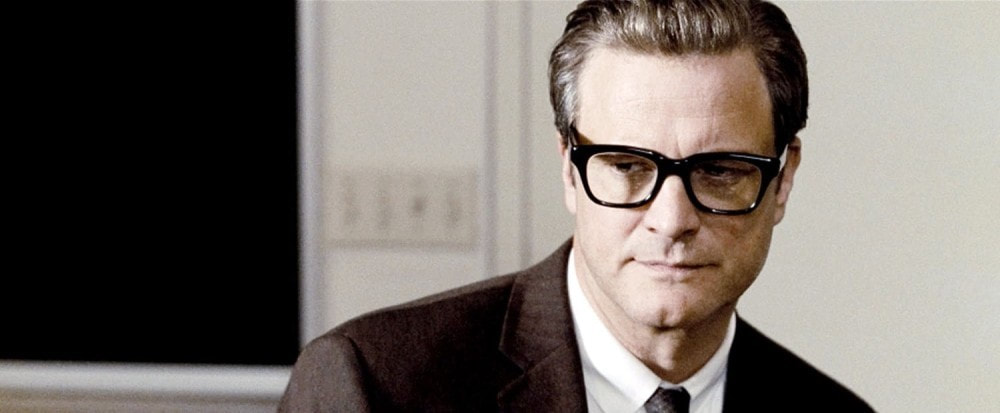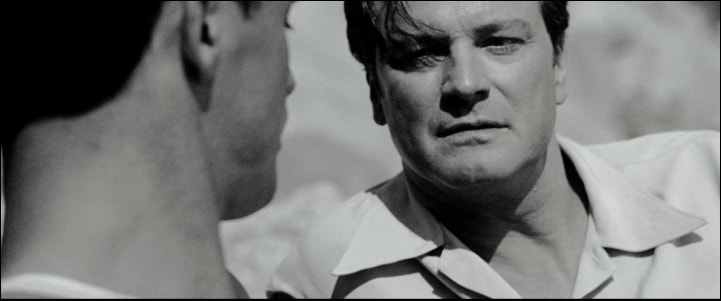Waking up begins with saying am and now. For the past eight months waking up has actually hurt. The cold realization that I am still here slowly sets in.
Tom Ford’s directorial debut A Single Man is a quiet, emotive and beautiful film. Based on Christopher Isherwood's 1964 novel of the same name, the film is essentially a snapshot in time – a day in the life of college professor George Falconer (Colin Firth). The film focuses on Falconer as he tries to negotiate the simple act of living following the death of Jim, his partner of sixteen years. The time is the early 1960s, when sexual acts between men were still criminalised and the mood was one of fear and uncertainty following the Cuban missile crisis. Set in Stanford, the film follows Falconer over the course of the day he decides to take his own life.
Tom Ford’s directorial debut A Single Man is a quiet, emotive and beautiful film. Based on Christopher Isherwood's 1964 novel of the same name, the film is essentially a snapshot in time – a day in the life of college professor George Falconer (Colin Firth). The film focuses on Falconer as he tries to negotiate the simple act of living following the death of Jim, his partner of sixteen years. The time is the early 1960s, when sexual acts between men were still criminalised and the mood was one of fear and uncertainty following the Cuban missile crisis. Set in Stanford, the film follows Falconer over the course of the day he decides to take his own life.
Without getting into the separate debate around whether it was appropriate to give this role to a heterosexual actor, this is one of Firth’s best performances to date and earned him well-deserved critical claim. He handles Falconer’s grief with aplomb. The political backdrop serves to emphasise the extent to which Falconer is consumed by grief – his loss rendering him disinterested in events taking place in the wider world. His anger and heartache is palpable throughout the film where moments of happy family life play in slow flashes of colour and muted sound, creating a distance between Falconer and his reality. There are black and white flashbacks of moments with Jim and the viewer is granted an insight into Falconer in happier times. His grief is quiet – not only because Falconer is reserved and not prone to dramatic displays of emotion – but because society demands that he grieve silently. He is not permitted to attend the funeral of his partner and most in his life seem unaware or dismissive of the relationship which was such a pivotal part of his life.
The film is rich with gorgeous cinematography, even as Falconer engages in mundane acts like waking from sleep, going to the bathroom and brushing his teeth. Everything he does is conducted in an almost dreamlike state, caught somewhere between sleep and waking. The slow, drawn out scenes add to the sense of hallucination – of sleepwalking through life – and serve to reiterate the overwhelming power of grief.
Despite the overwhelming grief, there are moments of light humour and sparks of sensuality. These come in Falconer’s interactions with his student Kenny (Nicholas Hoult), his brief encounter with an impossibly handsome Spanish boy he meets when buying gin and his friendship with Julianne Moore’s Charley, an English expat and Falconer's confidant.
As Kenny, Hoult is captivating. He’s beautiful and disaffected in his uneasy fascination with Falconer. Julianne Moore is fabulous in her role as Charley, Falconer’s best friend and one-time lover. She tackles the role with confidence, negotiating alcoholism and unrequited love with a sense of warmth. Charley has all the devastating beauty of the Hollywood starlet and shots trained on her eyes as she applies makeup emphasise the layers to her character and the mask of outward happiness which slips on occasion during her evening with Falconer, through her dialogue and facial cues.
One of Firth’s best films to date and a self-assured and confident debut from Ford. A moving and affecting story of love, loss and grieving. Would recommend.
Despite the overwhelming grief, there are moments of light humour and sparks of sensuality. These come in Falconer’s interactions with his student Kenny (Nicholas Hoult), his brief encounter with an impossibly handsome Spanish boy he meets when buying gin and his friendship with Julianne Moore’s Charley, an English expat and Falconer's confidant.
As Kenny, Hoult is captivating. He’s beautiful and disaffected in his uneasy fascination with Falconer. Julianne Moore is fabulous in her role as Charley, Falconer’s best friend and one-time lover. She tackles the role with confidence, negotiating alcoholism and unrequited love with a sense of warmth. Charley has all the devastating beauty of the Hollywood starlet and shots trained on her eyes as she applies makeup emphasise the layers to her character and the mask of outward happiness which slips on occasion during her evening with Falconer, through her dialogue and facial cues.
One of Firth’s best films to date and a self-assured and confident debut from Ford. A moving and affecting story of love, loss and grieving. Would recommend.

